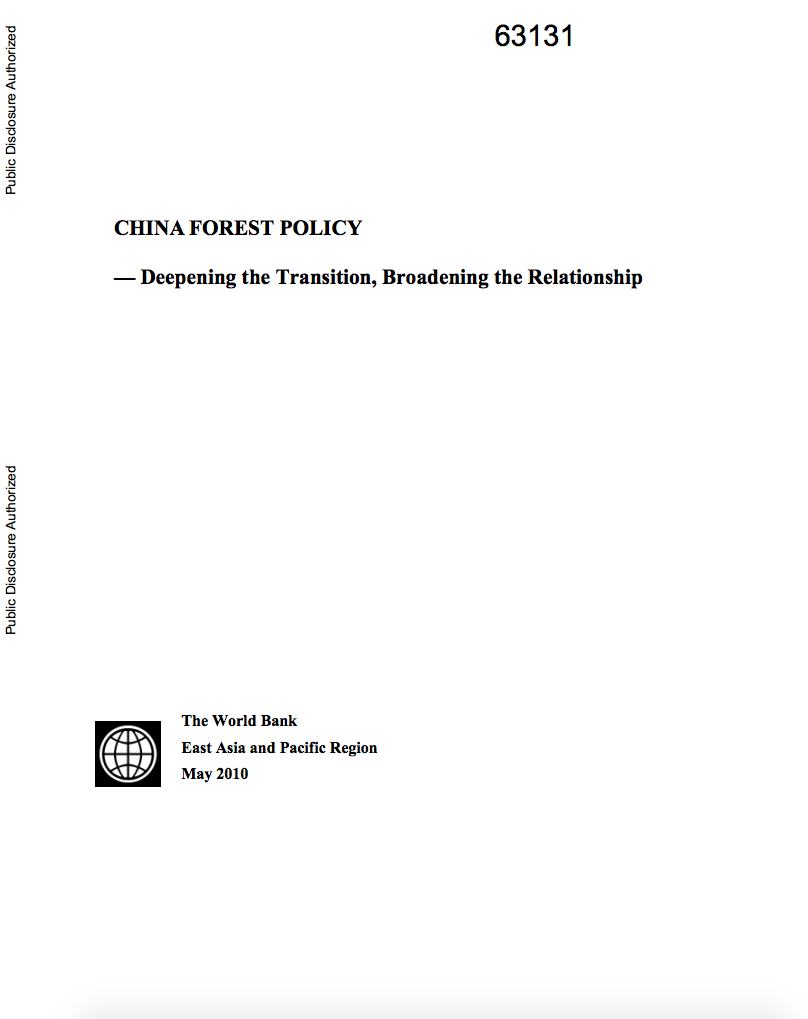The World Bank is a vital source of financial and technical assistance to developing countries around the world. We are not a bank in the ordinary sense but a unique partnership to reduce poverty and support development. The World Bank Group has two ambitious goals: End extreme poverty within a generation and boost shared prosperity.
- To end extreme poverty, the Bank's goal is to decrease the percentage of people living on less than $1.25 a day to no more than 3% by 2030.
- To promote shared prosperity, the goal is to promote income growth of the bottom 40% of the population in each country.
The World Bank Group comprises five institutions managed by their member countries.
The World Bank Group and Land: Working to protect the rights of existing land users and to help secure benefits for smallholder farmers
The World Bank (IBRD and IDA) interacts primarily with governments to increase agricultural productivity, strengthen land tenure policies and improve land governance. More than 90% of the World Bank’s agriculture portfolio focuses on the productivity and access to markets by small holder farmers. Ten percent of our projects focus on the governance of land tenure.
Similarly, investments by the International Finance Corporation (IFC), the World Bank Group’s private sector arm, including those in larger scale enterprises, overwhelmingly support smallholder farmers through improved access to finance, inputs and markets, and as direct suppliers. IFC invests in environmentally and socially sustainable private enterprises in all parts of the value chain (inputs such as irrigation and fertilizers, primary production, processing, transport and storage, traders, and risk management facilities including weather/crop insurance, warehouse financing, etc
For more information, visit the World Bank Group and land and food security (https://www.worldbank.org/en/topic/agriculture/brief/land-and-food-security1
Resources
Displaying 4296 - 4300 of 4907
The Rainforests of Cameroon :
Experience and Evidence from a Decade of Reform
In 1994, the Government of Cameroon
introduced an array of forest policy reforms, both
regulatory and market-based, to support a more organized,
transparent, and sustainable system for accessing and using
forest resources. This report describes how these reforms
played out in the rainforests of Cameroon. The intention is
to provide a brief account of a complex process and identify
what worked, what did not, and what can be improved. The
China Forest Policy : Deepening the Transition, Broadening the Relationship
A pattern of forest area loss followed
by a period of reforestation is representative of the forest
transition process. Forest transition has been observed in
many countries and is a feature of the development process.
China reached its inflection point earlier and faster than
most other countries that have gone through the transition.
The report describes the success of reforms to forest
resource tenure in collective forest areas. These reforms,
Bulgaria : Public Expenditure Review for Agriculture and Rural Development
Although Bulgaria now implements the
European Union's (EU's) "common"
agricultural policy (CAP), national policymakers still
maintain responsibility to tailor CAP implementation to meet
the specific development needs of the country. The National
Rural Development Program (NRDP) very appropriately lays out
the challenges that Bulgarian agriculture and rural
development face, but the early implementation of a
Managing Water for Sustainable Growth and Poverty Reduction : A Country Water Resources Assistance Strategy for Zambia
The country water resources assistance
strategy for Zambia provides an analysis of the role of
water in the economy and identifies the specific challenges,
development opportunities and policies which inform an
agreed framework for priority areas of assistance. Zambia
lies entirely within the catchments of the Zambezi and Congo
rivers and all internal runoff is shared by downstream and
parallel riparian countries. This strategic geographic
Under What Conditions Does a Carbon Tax on Fossil Fuels Stimulate Biofuels?
A carbon tax is an efficient economic
instrument to reduce emissions of carbon dioxide released
from fossil fuel burning. Its impacts on production of
renewable energy depend on how it is designed --
particularly in the context of the penetration of biofuels
into the energy supply mix for road transportation. Using a
multi-sector, multi-country computable general equilibrium
model, this study shows first that a carbon tax with the







